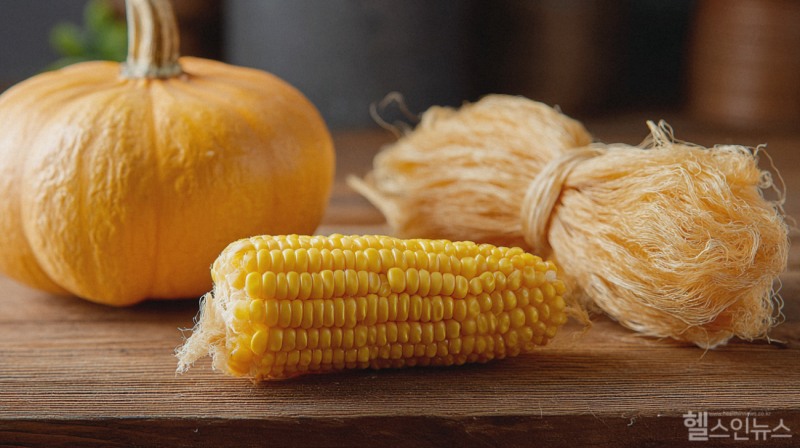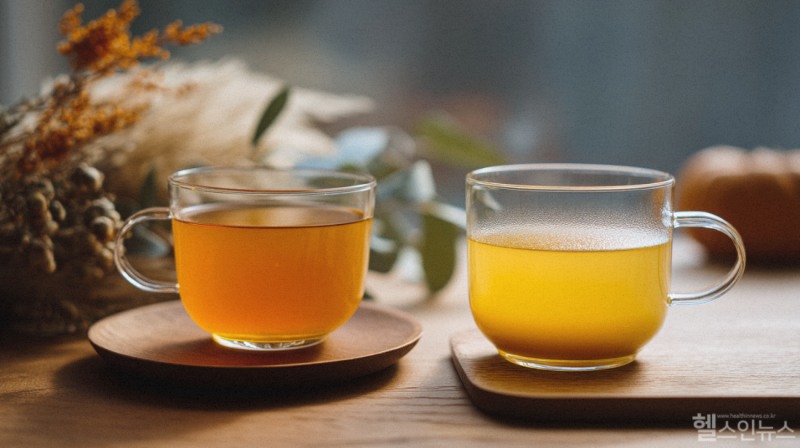In Korea, traditional remedies like herbal teas have long been used to alleviate edema. Among them, corn silk tea and pumpkin tea stand out, cherished for centuries and now backed by scientific research for their health benefits beyond folklore.
Corn Silk Tea: A Potent Diuretic with Cardiovascular Benefits
Corn silk tea, brewed from the golden threads surrounding corn cobs, has earned its reputation as a go-to remedy for edema. Rich in polyphenols, flavonoids, saponins, and alkaloids, it promotes waste elimination and diuresis. Its high potassium content helps flush excess sodium from blood vessels, aiding in hypertension prevention and management.
Corn silk’s maysin compound also protects liver cells and improves fatty liver conditions, making it a dual-purpose tea for edema relief and hepatic health. However, its strong diuretic effect demands caution. Overconsumption may lead to dehydration, hypoglycemia, or constipation. For those with kidney conditions like renal insufficiency, it could be harmful. Experts recommend one to two cups daily, paired with adequate water intake.

Pumpkin Tea: Cleansing Blood and Boosting Overall Health
Pumpkin tea, a staple in Korean households, is particularly renowned for reducing postpartum edema. Packed with beta-carotene, a potent antioxidant, it neutralizes free radicals and promotes cleaner blood. Its potassium and pectin content aids in expelling sodium and waste, while its diuretic properties help reduce swelling. Notably, mature pumpkins contain higher beta-carotene levels than butternut squash or red bell peppers, offering cardiovascular benefits.
Beyond edema relief, pumpkin tea provides vitamins A, C, and B, along with iron and fiber, supporting immune function and blood sugar regulation. A study from the U.S. National Cancer Institute found that regular consumption of mature pumpkin nearly halved lung cancer risk, underscoring its broader health benefits, including anti-cancer properties, glucose control, and eye health support.
Caution is warranted, however. Its diuretic effects may cause dizziness or lethargy in those with hypotension, and excessive intake during early pregnancy could lead to discomfort. Since pumpkin tea is often sweetened with honey or rice syrup, diabetics should opt for unsweetened versions in moderation. Experts advise steaming, drying, or boiling clean pumpkins for the safest, most effective preparation, with one cup daily promoting gentle fluid metabolism and overall wellness.

Choosing the Right Tea for Your Body
Both corn silk and pumpkin teas excel at reducing edema, thanks to their potassium and antioxidant content, which supports fluid and waste elimination while aiding blood pressure control. Yet, their distinct profiles call for tailored choices based on individual health needs.
Corn silk tea, with its robust diuretic and liver-supporting properties, suits those with generalized or facial edema, hypertension, or blood sugar concerns. Pumpkin tea, meanwhile, shines for postpartum recovery, immune support, and eye health, making it ideal for those in recovery or with weakened immunity.
Both teas require moderation due to their diuretic potency. Individuals with renal disease, hypotension, or diabetes should consult a healthcare provider before consumption. Experts emphasize that while these teas are valuable adjuncts, they work best alongside a balanced diet and healthy lifestyle. Persistent edema, especially with systemic fatigue or weight gain, may signal underlying conditions beyond simple fluid retention, necessitating medical evaluation.
Haeun Oh, HEALTH IN NEWS TEAM
press@hinews.co.kr


